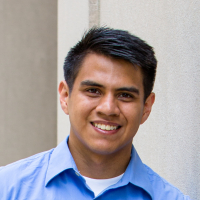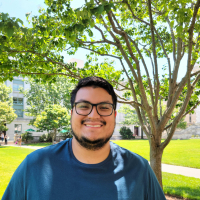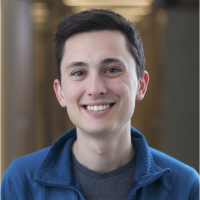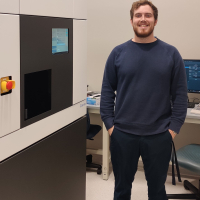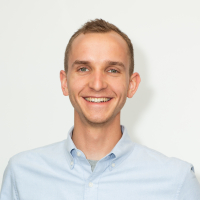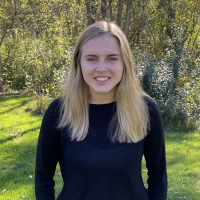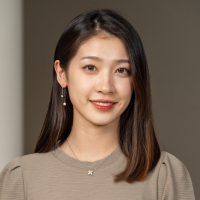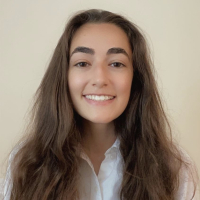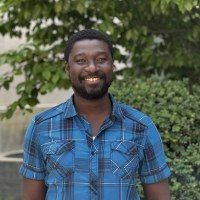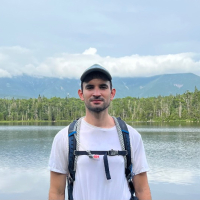
Andrew Kruse
 hms.harvard.edu
hms.harvard.eduResearch in my lab aims to elucidate the molecular basis of transmembrane signaling through the use of biochemistry, pharmacological studies, and structural biology. We are particularly interested in signaling pathways with connections to human health and disease, including G protein-coupled receptors and other transmembrane receptors. In the long term, we aim to leverage a detailed molecular understanding of these pathways to facilitate the development of new and better therapeutics.
Miguel Alcantar
 uci.edu
uci.eduMiguel obtained his B.S. in Bioengineering from UC San Diego and his Ph.D. in Biological Engineering from MIT under the supervision of Prof. Jim Collins. His doctoral thesis focused on using high-throughput, synthetic biology approaches to study gene regulatory networks in bacteria and yeast. He joined the Kruse Lab in 2025 and is jointly mentored by Prof. Chang Liu at UC Irvine. In these labs, Miguel is interested in developing scalable evolution and computational design approaches to engineer antibodies that modulate GPCR signaling. Outside of the lab, Miguelenjoys biking and hiking distances he is physically unprepared for, reading, and embracing his role as a devoted dog dad to two dachshunds.
Anthony Banks
 hms.harvard.edu
hms.harvard.eduVictor Calvillo-Miranda
 g.harvard.edu
g.harvard.eduVictor received his B.S. in Microbiology with a minor in Biochemistry from the University in Arizona where he worked under the supervision of Dr. May Khanna in identifying small molecule modulators of TDP43 and Malat1, both implicated in neurodegenerative diseases, using in silico docking and biophysical binding assays. After graduating from the UA, Victor joined the Chemical Biology program in 2020 and joined the Kruse lab in 2021. In his spare time, he enjoys spending time with his partner and dogs, playing chess, and spending time at the beach.
Josh Cofsky
 hms.harvard.edu
hms.harvard.eduJosh (B.S., Molecular Biophysics & Biochemistry, Yale, 2015; Ph.D., Molecular & Cell Biology, UC Berkeley, 2021) completed his doctoral work in the labs of Jennifer Doudna and John Kuriyan, where he studied how protein and nucleic acid conformational dynamics enable the function of CRISPR-associated enzymes in bacterial immunity and genome editing applications. In 2022, he began his postdoc in the Kruse lab, where he is using biochemistry and structural biology to probe bacterial membrane protein function. Outside of lab, Josh likes Baroque music, climbing on real and fake rocks, and sleeping in tents.
Kevin Felt
 hms.harvard.edu
hms.harvard.eduKevin received his bachelor of science in biochemistry from the University of Washington in 2018, during which he performed research in the laboratory of Dr. Jim Bruce. He then received his PhD in physiology and biophysics from Case Western Reserve University in 2025 under the mentorship of Dr. Sudha Chakrapani. His dissertation research utilized cryo-EM to determine the structural basis for ligand modulation of the 5-HT3A receptor, a pentameric ligand gated ion channel. He will continue exploring transmembrane signaling and membrane protein structural biology in the Kruse lab in the context of GPCR signal modulation by KCTD proteins using cryo-EM and other biophysical methods. Outside of lab, Kevin is interested in carpentry, woodworking, hiking, and hopes to take advantage of his proximity to the Atlantic by learning sailing and possibly scuba diving while in Boston.
Joe Hurley
 g.harvard.edu
g.harvard.eduLauren Litzau
 g.harvard.edu
g.harvard.eduJinghan Liu
 hms.harvard.edu
hms.harvard.eduJinghan received her Ph.D. in Medicinal Chemistry at the University of Michigan in Dr. Emily Scott’s lab. Her thesis research focused on the structure and function of cytochrome P450 enzymes to support drug design for major human diseases and drug metabolism predictions in neonates. She joined the Kruse lab in September 2023.
Jessica Orofino
 umassmed.edu
umassmed.eduJessica is a medical student currently on a research year between her third and fourth year. She received her B.S. in neuroscience from Muhlenberg College where she worked under Dr. Jeremy Teissere studying the pharmacodynamics of the GABAA receptor. After completing her ScM in Medical Sciences at Brown University in 2022, she matriculated into UMass Chan Medical School. She now works under the supervision of Dr. Smith both in lab, studying GPCR signaling and nanobody development, and in the clinic. She plans to apply for Dermatology residency in the 2026-2027 residency application cycle.
James Osei-Owusu
 hms.harvard.edu
hms.harvard.eduJames received his Ph.D. in Cellular and Molecular Physiology from Johns Hopkins School of
Medicine under the supervision of Dr. Zhaozhu Qiu. His thesis work focused on structure-
function characterization of a novel proton-activated chloride channel (PAC). James likes to hike
and play soccer in his spare time. He joined the Kruse Lab in November 2021.
Daniel Same Guerra
 g.harvard.edu
g.harvard.eduDaniel was born in Cuba but grew up in the suburbs of Philadelphia. As an undergraduate at Princeton University, he worked in the laboratory of Thomas Silhavy to characterize the role of YejM in regulating LPS biosynthesis. After graduating in 2020 with a B.S. in molecular biology, he became a research assistant in the laboratory of Cigall Kadoch at Dana Farber Cancer Institute. Here, he studied the function of mSWI/SNF (BAF) chromatin remodeling complexes in normal and oncogenic cell states. He then joined the Chemical Biology program in 2022, and the Kruse and Loparo laboratories in 2023. Daniel's current research is focused on understanding the regulatory mechanisms of protein complexes that build the bacterial cell wall. In his free time, he enjoys cycling, running, hiking, and trying different espresso beans.
Jeffrey Smith
 bwh.harvard.edu
bwh.harvard.eduJeffrey is from Washington State, attending the University of Washington for undergraduate. There he joined the laboratory of Charles Chavkin, studying opioid pharmacology. He subsequently matriculated in Duke University’s MD/PhD program, studying chemokine receptor signaling and biased agonism under the mentorship of Sudar Rajagopal and Robert Lefkowitz. After completing a medicine intern year, Jeffrey completed residency in the Harvard Combined Dermatology Residency Program. He joined the Kruse Lab in 2022 and his projects focus on GPCR signaling and antibody engineering. He is also an attending at the Brigham and Women’s Hospital where he cares for patients with autoimmune skin diseases.
Xunan Wang
 g.harvard.edu
g.harvard.eduXunan graduated from the University of Toronto in 2023. During undergraduate studies, she conducted research in pharmacology of neuropsychiatric diseases with Drs. Amy Ramsey and Ali Salahpour and nutritional epidemiology with Dr. David Jenkins. She joined the Chemical Biology PhD program at Harvard in Fall 2023 and the Kruse lab in Spring 2024. Xunan likes to grow plants, listen to music, and practice martial arts in her spare time.
Elizabeth Wren
 hms.harvard.edu
hms.harvard.eduElizabeth received their B.S. in Biochemistry from Wellesley College in 2024. For their undergraduate thesis, they studied the thermodynamics and biological relevance of guanine quadruplexes specific to Bdellovibrio bacteriovorus. They joined the Kruse lab in 2024. Outside of lab, they like playing and listening to live music, hiking, and knitting

